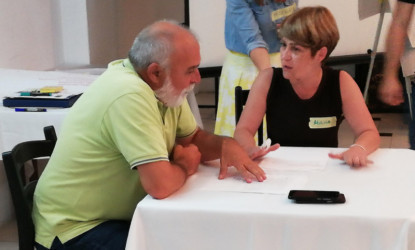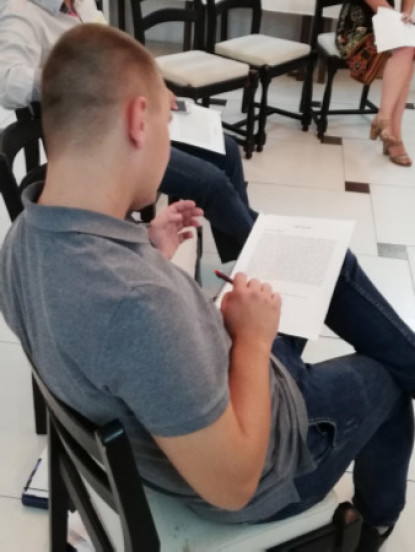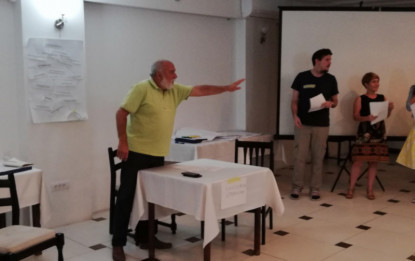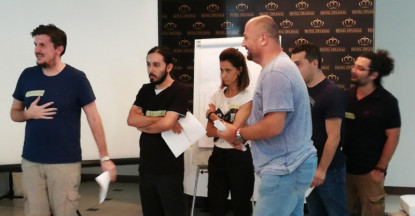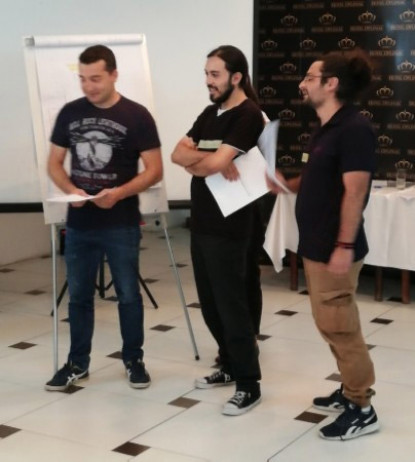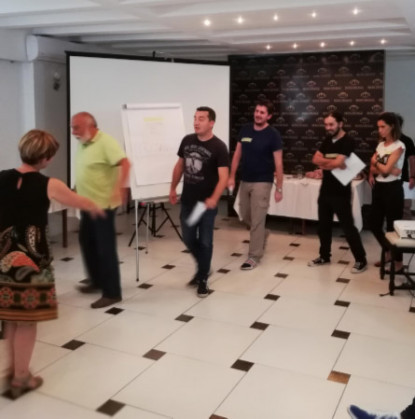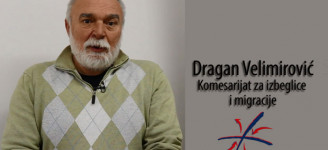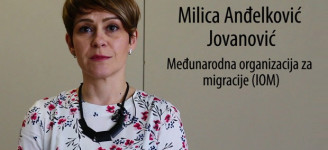A new training cycle for field service providers begins
Within the second phase of the project "Support to Strengthening Migration and Asylum Management in Serbia", implemented by the International Organization for Migration (IOM) with the support of the British Embassy in Belgrade, the second training module for a group of future trainers of the Migration Training Centre was held at the “Oplenac” hotel in Topola from 13 to 15 September.
Training for trainers is attended by 12 participants, representatives of the Commissariat for Refugees and Migration and the International Organization for Migration, future trainers for refugee and migrant protection. All participants have significant experience in the field of migration, including from many years of their work at these organizations. In this training, pursuant to the planned program, participants have upgraded their existing knowledge on topics of importance for the delivery of better quality services aimed at the protection of especially vulnerable groups of migrants - women, children and unaccompanied minors, and developed competences for transferring knowledge and skills in order to be fully trained in raising the capacity of various field providers of services to refugees and migrants.
The objectives of the training held in Topola were acquainting with the concept of vulnerability and the existence of different groups at risk of discrimination and violence; understanding standards and principles of protection of migrants as based on international standards and domestic regulations; understanding the role of various actors in contact with migrants, and conducting workshops and trainings for various migration field service providers.
The basis for acquiring migration knowledge and skills is understanding the concept of vulnerability of various social groups, especially those most vulnerable in migration. A special emphasis has been placed on understanding gender equality and life circumstances of the entire migrant population, especially women and girls.
The program also covered the basic principles of treatment of migrants in accordance with the institutional and legal framework for the protection of migrants and refugees, as well as their treatment during entry and stay in the territory of the Republic of Serbia. Additional attention was paid to understanding the roles of all actors in the field of migration and their specific roles in direct field contact with migrants.
The second part of the program was devoted to practical workshops, notably, the preparation of future trainers to deliver workshops independently in a safe environment, where through individual and group work with the mentor, participants worked on the development of competencies for the preparation and field delivery of trainings.
In the concluding part of the program, further process of preparation and mentoring was defined, so as to correspond to the needs of each individual participants, based on the evaluation and self-assessment of topics for further work. At the very end, a plan of field trainings was developed with service providers, including a schedule of trainers who gravitate to specific reception centres. Also, the dates of the first of the five planned trainings for field service providers have been determined, and the first planned training will be held in mid-October at the reception centre Adaševci.





